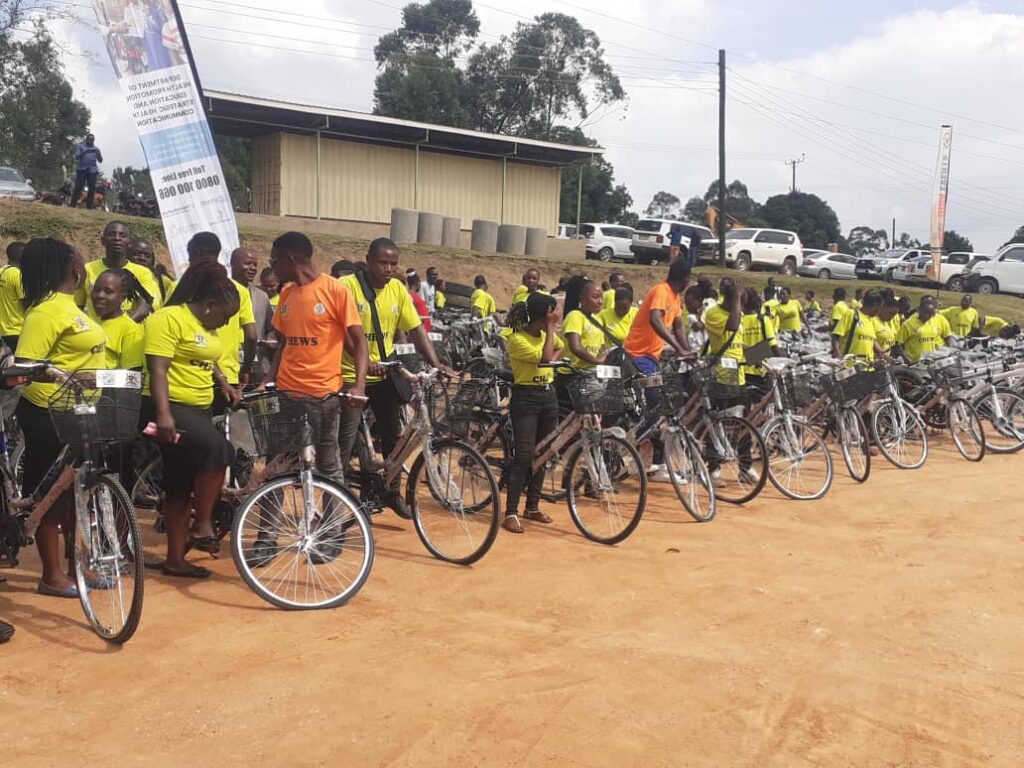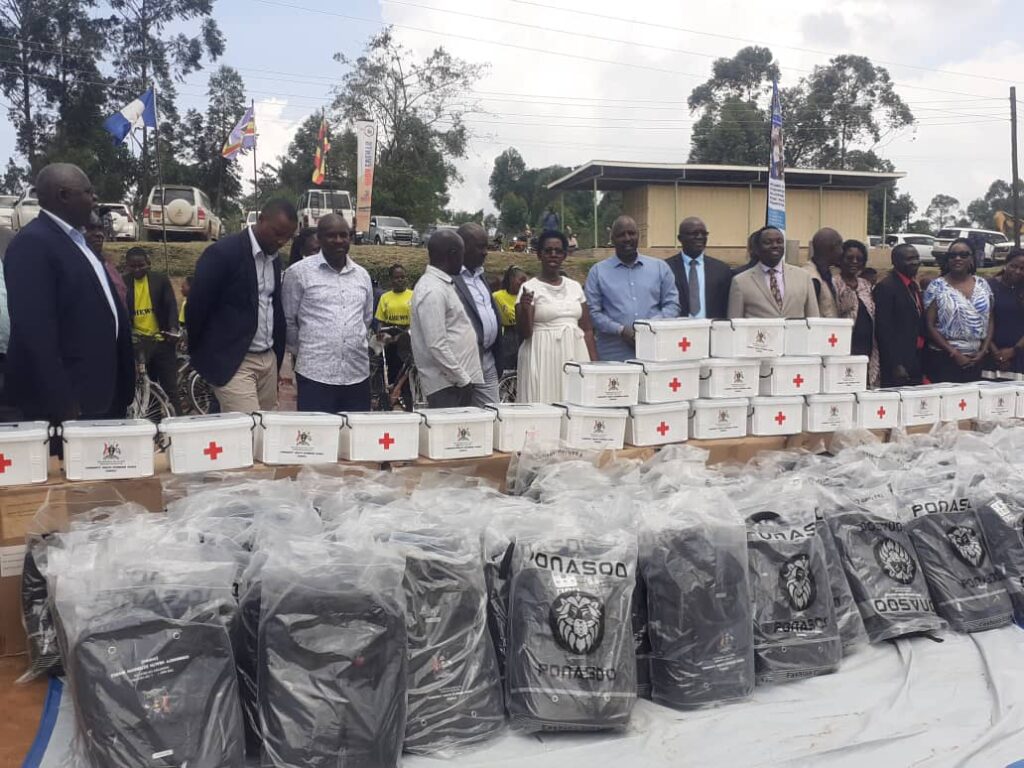
KYOTERA.
The Ministry of Health has issued a strong warning to health workers in Kyotera District over a rising cases of absenteeism, which authorities describe as an “organised vice” .
The warning was delivered by Dr. Diana Atwiine, the Ministry’s Permanent Secretary, during the official launch of a major community health initiative on Thursday.
Dr. Atwiine, who presided over the deployment ceremony of 130 Community Health Extension Workers (CHEWs), said the government is losing patience with healthcare personnel who habitually neglect their duties.
“We are going to start biting all reckless workers,” she warned. “There are many people out there seeking jobs. If one feels tired of serving, they had better quit before we take action. Absenteeism is unacceptable.”
She announced that the Ministry would soon begin conducting unannounced inspections across the country and that any health workers found absent from their stations without valid justification would face disciplinary measures.
The newly launched CHEWs program is part of Uganda’s broader effort to bolster primary healthcare services, particularly in hard-to-reach areas.

The 132 CHEWs deployed in Kyotera are trained to provide basic medical services, health education, and disease prevention strategies directly at the household level.
“CHEWs are the front line of our health system,” Dr. Atwiine said. “They play a vital role in linking communities with formal health facilities and ensuring that public health messages reach everyone.”
Each of the workers received a bicycle to facilitate mobility within rural communities. They also received fully equipped medical kits containing essential diagnostic tools such as glucometers, blood pressure monitors, thermometers, and MUAC (Mid-Upper Arm Circumference) tapes—key tools for assessing child malnutrition.
To ensure their safety and effectiveness in the field, the CHEWs were also provided with gumboots, media jackets, and durable field bags for carrying their gear.
While welcoming the new cadre of workers, Dr. Atwiine reminded them to operate within their scope of training and not to overstep by treating serious illnesses beyond their capacity.
“If a CHEW encounters a case that requires advanced care, they must immediately refer it to the nearest health facility. This is not just about safety—it’s about accountability,” she emphasized.
Infrastructure Challenges Persist
During the event, Dr. Richard Kabanda, the Commissioner for Health Promotion and Education, called on the government to prioritize infrastructure development at key facilities in the district. He singled out Kalisizo Hospital and Kakuuto Health Centre IV, noting that both are operating under strain due to outdated and insufficient structures.
“These facilities need urgent upgrades to accommodate the growing patient numbers and to match the Ministry’s broader healthcare goals,” Dr. Kabanda said.
Dr. Edward Muwanga, the Acting District Health Officer for Kyotera, echoed the need for additional support. However, he also expressed optimism that the new CHEWs would alleviate pressure on existing health staff.
“Our health workers have been overwhelmed by the volume of patients,” he said. “With the CHEWs now in place, we expect a significant reduction in congestion at health centers. They’ll help with early detection and community-level follow-ups.”
Dr. Muwanga also praised the provision of transportation and equipment, noting that past community outreach efforts were often hindered by logistical challenges.
“We have received 130 bicycles that will greatly improve our ability to reach targeted households. This is a much-needed intervention,” he said.
Local leaders also voiced support for the initiative. Kyotera District Chairman Patrick Kintu Kisekulo called the program “timely and transformative,” adding that it has the potential to improve health outcomes across the district.

A Turning Point for Rural Health
The launch of the CHEWs program in Kyotera marks a pivotal moment in Uganda’s strategy to decentralize and strengthen its healthcare system. Deployed in August 2024 after completing a six-month intensive training program, the CHEWs are tasked with supporting family planning, supervising Village Health Teams (VHTs), leading sanitation campaigns, and promoting healthy living practices.
Health officials are optimistic that, with the right oversight and community engagement, the program will transform rural healthcare delivery and reduce the burden on regional hospitals.
However, Dr. Atwiine’s stern message on absenteeism also serves as a broader reminder: effective health systems rely not only on programs and funding but on committed individuals who show up to serve their communities.